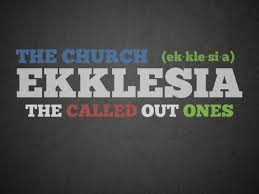On more than one occasion, I have heard people say that they are Christians or they love Jesus, but they have no use for the local church. When probing further into their meaning, their aversion to church is often tied to a specific denomination, pastor, or church that left them feeling dissatisfied or discontented. Others say that churches are hypocritical or only interested in financial gain.
However, a key emphasis in the New Testament is that God mediates His plan and program in and through the local church. He could have accomplished His will any way He desired. Jesus was clear after His resurrection—after He paid the price for sin and made new life available for every person who would repent, believe, and place their faith in Him—His people would then gather in churches. He told Peter in Matt 16:18, “I also say to you that you are Peter, and upon this rock I will build My church; and the gates of Hades will not overpower it.” Christ is building His church upon the confession of Peter that Jesus is the Christ, the Son of the living God (Matt 16:16).
The word “church” in Greek is ekklesia: Ek, meaning “out of” and kaleo, meaning “to call.” The Church is a group of people who have been called out of the world and given new life in Christ to accomplish God’s purposes on this earth. That is a great calling and a compelling purpose.
After the birth of the Church on the day of Pentecost in the book of Acts, there were several great missionary journeys during which the Gospel was proclaimed. Many came to believe in Christ and then organized into local churches. Apostles sent letters to some of those churches—letters which were ultimately canonized into the New Testament (Rome, Corinth, Philippi, etc.). Additionally, epistles were addressed to pastors, deacons, saints, and church members. The church was on the move, turning the world upside down for Christ. There were heartaches as well, but Jesus was keeping His promise; He keeps his promise of building His church so that the forces of evil, the gates of hell, will not overpower it.
Christ not only established the Church. He gave Himself up for her (Eph 5:25). The Apostle Paul also tells us that “Christ is also head of the body, the church; and He is the beginning, the firstborn from the dead, so that He Himself will come to have first place in everything” (Col 1:18).
If indeed God has chosen to accomplish His plan through local churches, we should not disrespect the very thing that He established and for which He sacrificed Himself. It would be wise to not only know it well, but to cherish it because of the framework God gave us through His Word.

